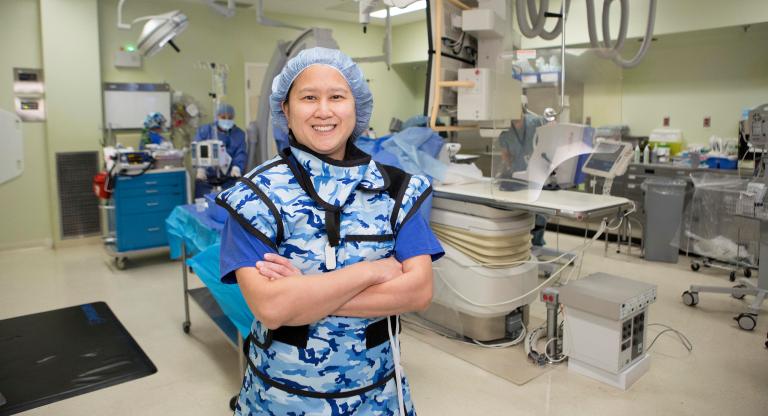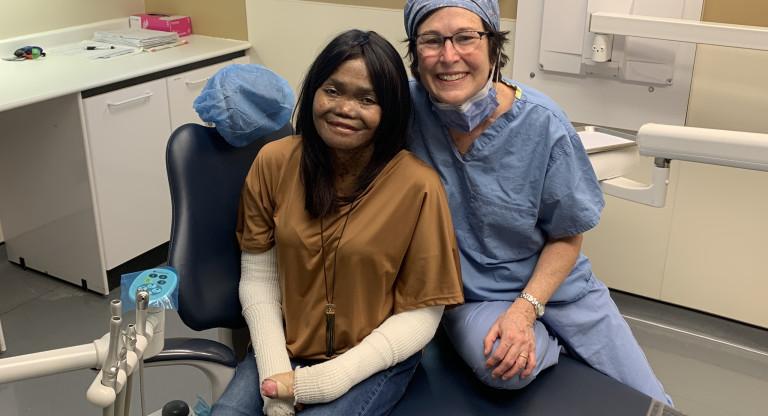Treating Scleroderma at Sinai Health

Dr. Sindhu Johnson is the Director of the Toronto Scleroderma Program (TSP), which is based out of Mount Sinai Hospital. The Program provides patient care, education, and research on the scleroderma spectrum of diseases.
Scleroderma is a rare disease that causes a hardening and tightening of skin and connective tissues, and can damage internal organs. It can be life-threatening. It has no cure, and no drugs that reverse its progress. Scleroderma is one of the many autoimmune diseases that are treated through Sinai Health’s Rebecca MacDonald Centre for Arthritis & Autoimmune Disease.
Patients at the TSP are not just GTA-based, some travel from other cities in Ontario, some from other places across Canada, and some from other countries around the world. “We really have a global impact at a patient level,” says Dr. Johnson.
The educational focus of the clinic means that Dr. Johnson and her team run a training program for doctors from around the world. The goal is to increase the number of scleroderma experts globally and to see doctors leave the training program with the capacity to start scleroderma clinics in their home cities and home countries. “If you think about it, one trainee will go on to support hundreds and likely thousands of patients during their career. An investment in training is an investment in patient care.”
The research focus of the TSP is multi-faceted. One unique aspect of the TSP is that they have the largest single centre cohort of patients who have been followed for up to 50 years. The cohort was established in 1970, and as a result of this, TPS researchers can do observational research describing and learning about the disease and how it manifests in people, different responses to treatment, quality of life, and more. They collaborate with translational scientists to understand the mechanisms of the disease, to try and predict who will go on to develop the disease as well as the severity of the disease.
The TSP also does clinical trials of novel therapeutics. Dr. Johnson was an investigator with landmark clinical trials that led to FDA approval for two separate drugs used to treat scleroderma. Given that the disease does not have a cure, advancing two therapeutic treatments was a milestone achievement. “It’s not easy to do research on a rare disease,” Dr. Johnson says, “but we need more experts and more information, to help patients living with arthritis and scleroderma in Canada, and around the world.”









